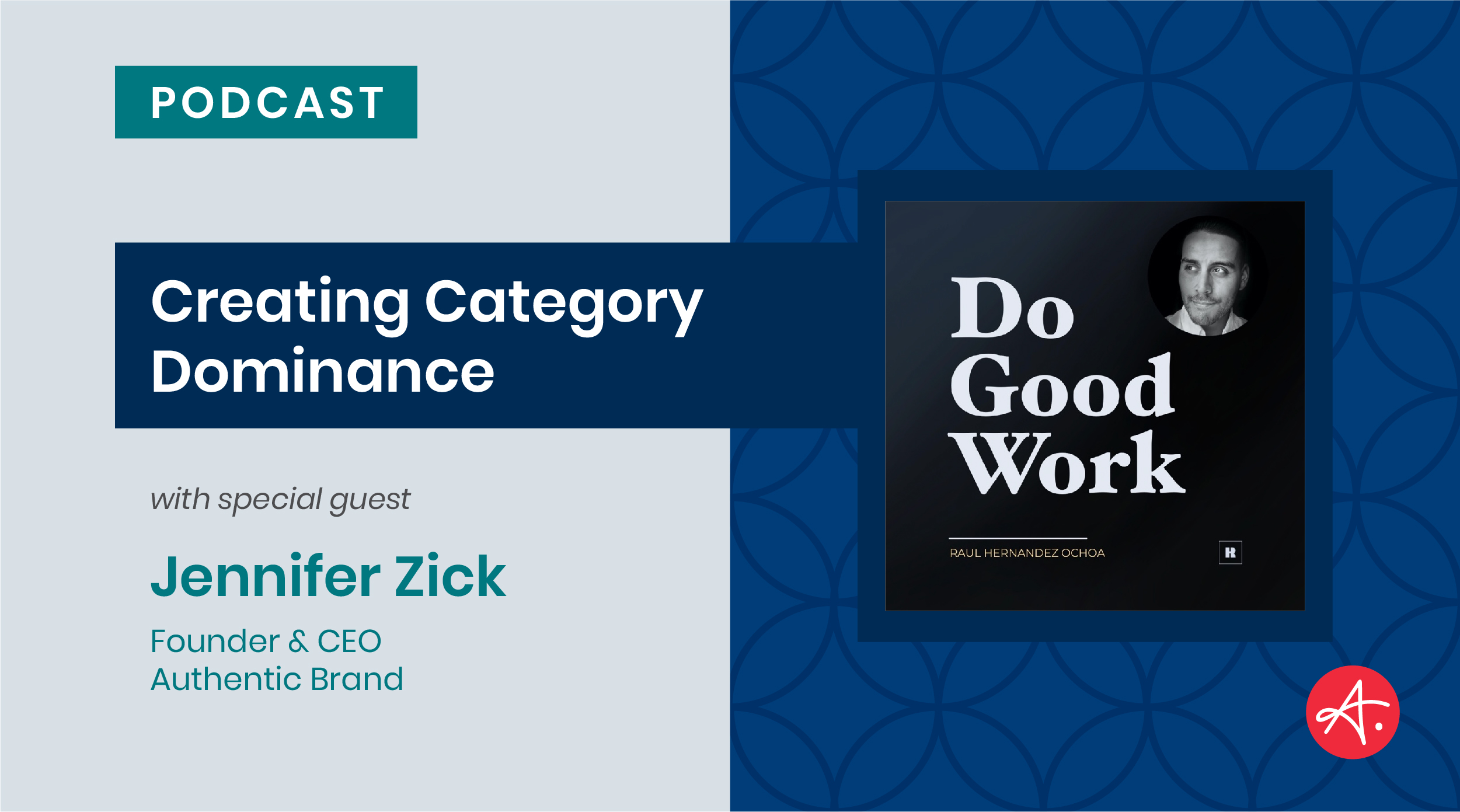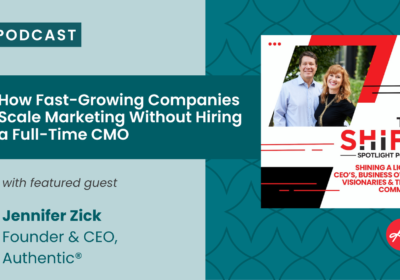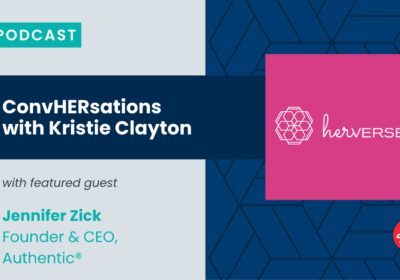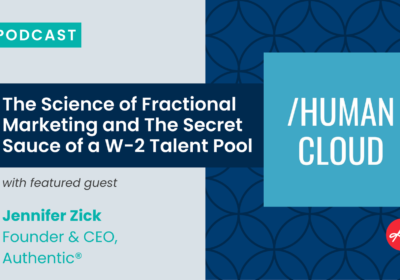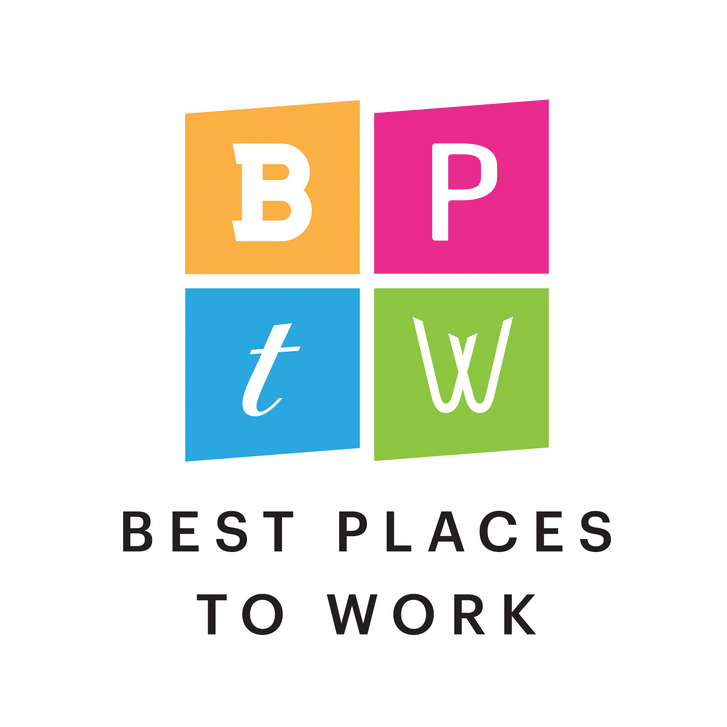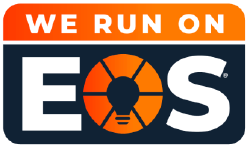Creating Category Dominance
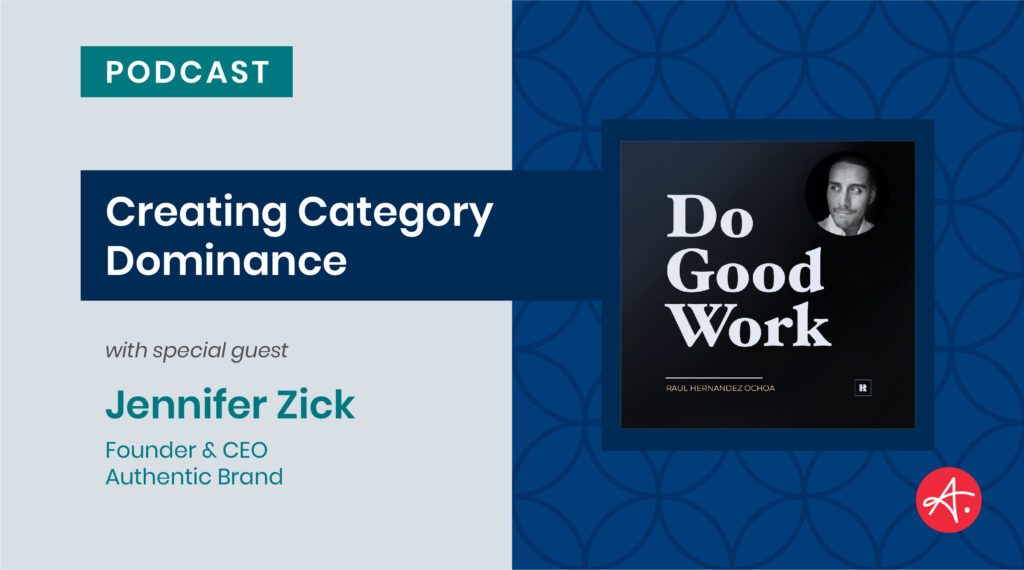
Our founder and CEO, Jennifer Zick, was recently the featured guest on the Do Good Work podcast hosted by Raul Hernandez Ochoa.
Jennifer discussed how businesses can achieve category dominance when they start by building a solid marketing foundation that includes a strategy to help them overcome random acts of marketing.
Listen to the podcast
Watch the conversation
Key Takeaways
- Jennifer shares how a painful job termination became the catalyst for building Authentic.
- Entrepreneurship magnified Jennifer’s belief in surrender and trusting a bigger plan.
- She outlines how Authentic became one of the first national firms to define and elevate the fractional CMO model.
- Jennifer explains the unique decision to employ full-time CMOs and the long-term value it adds.
- Authentic’s LIFT Integrator Community has become a cornerstone of trust-building and referral growth.
Resources Mentioned
- The Power of the Authentic Mindshare™ and CMO peer community
- The Value of a Fractional CMO: Quick impact and low risk
- The Components of Authentic Growth® Methodology
- Empowering Success with EOS
- LIFT Integrator Community™
- Brand: From a company with a name & logo to an unparalleled leader
Full Episode Transcription
Introduction & Jennifer’s Entrepreneurial Journey
Raul Hernandez Ochoa: Hey, welcome back to the podcast. Today I’m talking to Jennifer Zick. Jennifer is the founder and CEO of Authentic®, a Minneapolis based fractional CMO firm that helps growing businesses Overcome Random Acts of Marketing® and confidently take the right next step towards healthy growth. Jennifer has pioneered the fractional Chief Marketing Officer space and in doing so, Authentic has built a reputation as a market leader serving a growing ecosystem of small and mid sized clients throughout the United States. Jennifer, welcome to the pod.
Jennifer Zick: So good to be here. Raul. Thank you so much for having me.
Raul Hernandez Ochoa: Before we dive into a lot of your expertise in marketing, fractional CMO, brand building, et cetera, I want to dive into like a twist, like knowing your actual backstory. And I think this is important for us to hear because if we’re listening to this going to work or we’re doing our company and building our business right now, or you have a side business that you’re trying to build or want to build, I think it’s important to hear from other people’s journeys that one, it’s possible and two, there it’s not always roses are playing with puppies as it feels right. So I want to get like your origin story because you mentioned that you built what you have now started from a kind of a low moment. If you can talk us through that.
Jennifer Zick: Absolutely. Happy to share. It was actually the loss of a job that was the catalyst for me in taking the leap into entrepreneurship. But there were obviously a lot of moments that built up to that. But I really don’t think that without having lost a job and feeling that very personally and being faced with a sudden crossroads and a sudden open door, I don’t think I would have ever become brave enough to really take that leap because I never grew up around entrepreneurs.
I came from a small town in Minnesota, a very blue collar kind of upbringing. I was always a very driven young lady, but my view of the world was really small and I didn’t have any professional mentorship. And it was only through really good fortune and a lot of blessings of good connections that I built my career over time. But I wasn’t naturally bent toward taking the risk toward entrepreneurship. But after losing the job and really feeling, first off, I wanted to take fate into my own hands. But secondly, I have to admit that I was really motivated initially by a good bunch of anger, I will show you momentum.
But later getting further down the road on my entrepreneurial journey and like really surrendering that this was the path I was meant to walk. And that was a gift that job loss was a gift. And really covering that in forgiveness and being so grateful for that experience really has helped me pour my heart and soul into this business. So yeah, it was being fired from a job that freed me up to take this leap.
Raul Hernandez Ochoa: No, I love that. And the fact that you didn’t grow up around entrepreneurship and this is. It’s raw and authentic. Tell me some of them. That’s an interesting twist of using energy because it’s an. Obviously it’s a negative pull. Right. Like I’m going to show you, I’m going to show the world, et cetera, which is a good thing. I think that we can use that to transfer that towards. You mentioned a surrender and a forgiveness and a gratitude piece. What were some of the beliefs that you needed to embody to one, take massive quality action to build the firm and then two, to transition towards seeing this in a more mature way. And I think that release also helped you probably grow exponentially as a person in the business.
Jennifer Zick: Yeah, absolutely. Well, I’ll back into that conversation by saying I’m a person of deep faith. And so trust and faith and gratitude and seeing a bigger plan for my life has always been a part of who I am. I’m also human and I’m also prone to a wide range of emotions. So losing my job definitely was a test for me. But several years before that happened, about five years before I lost my job, I was faced with an ovarian cancer scare at the young age of 35, when it wasn’t on my radar whatsoever. And so again, as a person of faith, I wasn’t afraid of death so much as I was suddenly woken up to my life, the opportunity of my life, and to live it more intentionally.
And so I was on this corporate roller coaster and I was grinding away for this career I thought I had to build. And I was also losing a valuable opportunity to be present in my own life as a wife and as a mother. And that cancer encounter really gave me pause. But I didn’t know what to do with that perspective until I was fired from my job. So the culmination of I want to live my life boldly and courageously and intentionally and with all of my God given gifts pointed toward a purpose. And now I’ve been freed up. So what is that purpose? And yes, I’m angry and I’m hurt and I’m all those things, but I don’t want to live with regret. That was the culminating position that helped me launch a business was when I really sat down and thought about it.
Well, I could either go look for another job, or I can nurture this little seed of entrepreneurship that’s been tucked away in my heart. What’ll it be? What do I want to believe about myself 10 years from now? I don’t want to look back and wonder, what if? I don’t want regrets. I would rather fail than have regrets. And so I just embraced this idea that I’m going to put it all out there, and either if it doesn’t work or I don’t like it, I’m not good at it. I’ll go get a job. At least I know I tried. Yep, I went for it. And yes, it was initially fueled by a little bit of, like, animosity. But over time, as I leaned into my true self, my. My faith and my desire to live with purpose really has helped me to live from a position of surrender. And anybody who’s been an entrepreneur knows that trying to force things to go our way and control the outcomes is impossible. That’s just life, not just entrepreneurship. But entrepreneurship puts that. It magnifies that reality. You are not in your hand.
Raul Hernandez Ochoa: Yeah.
Jennifer Zick: You are not in control. And so building a business and bootstrapping it and entrepreneuring is every single day waking up and being like, I. I always con. Likened it to, like, walking through a fog and just trusting I’m not going to fall off a cliff, that the ground is going to meet my foot.
Raul Hernandez Ochoa: That is so true.
Jennifer Zick: Yes. And so now that I have found six years of solid ground, meeting my feet along the way, I’m like, now my perspective is more like, I wake up every day with an open heart, open hands, open mind, and I trust that the right people and things and resources are going to come in the right way at the right time for the right reasons. And they do. And that doesn’t mean they go my way. They very often don’t go my way. Yeah, they come together the way they’re meant to be. And that’s the position of surrender that I feel like I’m embodying now on my journey.
Raul Hernandez Ochoa: I think it’s a really beautiful way to live. And I appreciate you being transparent. I had a conversation, I think, on Monday or Tuesday this week, and obviously when you’re listening to this, it’ll be weeks before this comes out. But I had a conversation with an entrepreneur. He, very successful, had an exit, I think a very big exit. Not going to name the number, but it’s a lot of zeros. Very successful, extremely humble guy. He was asked to be on a panel and talk about pivots and pitfalls in running a business. And he was telling me of how his story in regards to him was the ultimate low in the business.
Didn’t know if he’s going to make payroll, cash flow, wasn’t there crap. But then he was going to get bought out by one of the bigger leaders in his industry. But it wasn’t a good deal for him. Like he saw the term sheet and it’s like it just wasn’t a good deal. He was asked to tell the group of entrepreneurs or founders or business owners that he was speaking to how to move through that, how to navigate through that. And he’s. Well, I can’t say the strategy without also incorporating. Well, I just had trust. I have faith. Like you have to live that out.
And I think it’s a counter to what we hear a lot. Even if you are, you believe or you don’t believe, but it’s counter to the anxiety, like the anxiety driven advice that you have to put everything else in your own hands and no one’s going to give you a hand. I think there is that you have to have action, but there’s more to that and balancing that out. As a founder, I think you have to find your own way. And it sounds like you found your own way of doing that. And honestly, it’s a beautiful way of living.
Jennifer Zick: Well, thank you. I think that the hustle culture, the lean in culture, the take your future into your own hands, even though I said that was part of what was motivating me to start a business, but then you pretty quickly find out like it’s not. A lot of this is outside of my own hands anyway. So we are indoctrinated with. You have to drive the outcome, you have to keep taking the steps, that’s for sure.
But I find that having an attitude of belief in what you’re doing, that’s what gets others, that’s what gets other people to want to be part of helping you get there, living with you. So this idea of belief is big in our business. Like we really believe in what we’re building and the impact we’re working toward in the world and that helps bring us all together on that, on that path.
Fractional CMO Landscape
Raul Hernandez Ochoa: That’s wonderful. No, that’s, I think that’s key because walking and taking the right actions and I think the focal point being like the disciplines of every single day. And it’s just like my personal reflection, what are the disciplines that I can control that I can focus on even though I can’t always control the outcome, like the habits of every single day. And that’s the difficulty. It’s showing up day in and day out. And over time, I want to transition over. You’re running your business, you’re in the marketing space. And I think what I’ve been seeing in the last, I think it might have been the last since 2019, 2018.
Like it started being a trend of fractional and then now fractional CMO and now in the marketplace, I can talk, I can throw a rock at a marketing pool and then find someone who’s a rocketing like a fractional marketing CMO. So I’m curious to know, like, your thoughts on the space that you’re playing in. What separates experienced CMOs from others and like, what trends do you see in the marketplace right now in the fractional world?
Jennifer Zick: Oh, this is so fascinating to me and it makes me feel sometimes, man, I’m a real trendsetter and disruptor because when I started this business, I didn’t even know the phrase fractional CMO. I just had a concept in my mind of an issue that needed to be solved, which was that growing businesses needed access to the wisdom of experienced leadership sooner than they usually hire it. But they don’t need it full time, but they need to overcome random acts of marketing. And the only way to do that is with wise, experienced leadership. And so I started testing out this model I was working on and I bumped into some fractional CFOs along the way because the fractional concept has been really well established for years on the finance and sometimes on the HR side of the house. Back office fractional has been around for a while, but front office sales and marketing, I didn’t have a construct for that.
So six years ago, when we started building Authentic as a dedicated fractional CMO firm, there was only one other fractional CMO player in the market and I didn’t even know they existed when I started. So I knew we would have to plow the field. I knew we would have to educate. So the first three years of our business was all about creating content to educate the world on what is fractional CMO? Why is it a viable option? And you’re right, the marketplace for fractional has exploded in a lot of ways since then. And there are a lot. There are some good actors out there and some bad actors out there. And the hard thing as a, as a potential client is that you might not be able to tell at face value the difference.
So I’ve been doing a lot of writing about the who’s who in the fractional space and what are the different models and important questions you need to ask to know if this person’s truly qualified. So to put ourselves in the context of the whole ecosystem, there are only two national fractional CMO firms established in the US and we are one of those firms. Within the broader realm of fractional space, there are marketplaces, gig economy marketplaces, that can connect you with various levels of marketing talent. There are licensed brands that will allow independent contractors to use their logo and their license to go to market as a fractional CMO and they do some vetting of that talent.
And then there are agencies, digital agencies, traditional agencies, all kinds of marketing agencies that have discovered that they can repackage what was the strategic account manager role, entitle it fractional CMO and sell the client on the concept of now you’re getting all the strategic guidance and the execution, but really it hasn’t changed at all the model of the agency. And of course there is a big wide ecosystem of people, simply single shingles, independent consultants, people with various marketing backgrounds that are consulting independently and using the title fractional CMO.
And so within that broad landscape of fractional players, some are truly qualified for the CMO title. They are true executives who have 15 plus years of experience of marketing leadership building teams and programs, not just working in agencies, but also working in house. They know how to sit with a CEO and a CFO and a head of sales. They know how to operationalize business marketing. And then there are a lot of folks who have a unique specialization within marketing. They might be a copywriter or content specialist, they might be a lead gen specialist or search marketing expert, but they’re not CMOs who are holistic leaders and builders of teams.
So there’s a lot of nuance to it right now. And so our new challenge at Authentic is not defining what is a fractional CMO. It’s defining who are we in the pool of fractional CMOs? What makes us truly unique and valuable?
Authentic’s Business Model
Raul Hernandez Ochoa: I have two questions on that because this is an interesting dichotomy, really is. Number one, are you looking to play within the category of fractional CMO? Are you actually looking to create your own category around that? Because if you create, if you’re playing within that category, then you’re being compared. How are you differentiating? And have you considered looking at category creation?
Jennifer Zick: Yes. I can’t tell you all of the secrets we have planned for our future universe. But smart questions that we are asking of ourselves and that have always been part of my business vision and plan. So here’s what I will share with you. The end goal has never been to be a services firm with one offering. The end goal has been to solve the bigger problem. So let me elevate up. Okay. I talked about small growing businesses that need marketing leadership. That’s true.
In our model, we also embrace the reality that marketing leaders need one another. No single marketer has all the answers. And so our CMOs are W2 employees at Authentic. There’s not another firm like that. They’re very invested with each other, very collaborative with each other.
We call that our Authentic Mindshare™. The future of marketing for all businesses needs to embody this concept of mindshare. It needs to embody the reality that you’re never going to hire the perfect team that has all the answers that can help you innovate into the future. You need your marketers. Marketing is the top marketing role in any organization and is one of the shortest lifespan roles in the organization because that marketer can’t meet all the expectations that company unrealistically has of that one person. So marketers need to be surrounded by a community of broader resources to continue learning and evolving and innovating and companies need to support their marketers with those resources.
So we have a much bigger vision for how we are going to support growing businesses with marketing solutions. More to come on that. But right now we plan on category dominance in the fractional CMO space as the premier. I don’t need to be the biggest. It’s easy to grow numbers of CMOs if they’re all 1099ers who have to go create their own work and do the work. It’s hard to build a business of W2 employees and create structure and consistency and quality. And that’s what we’re doing.
Raul Hernandez Ochoa: Yeah, I was going to ask you too. Like with your business model, your goal was to focus on the. You mentioned structure and quality and that’s why you went the round of W2s like talk, talk to me a little bit more about that decision around because I’m like I have teams and I call clients teams, clients one on ones where they’re looking at what kind of structure should I have in terms of org chart the team that I lead, how the company runs itself and want to get your thoughts on how. What thought processes you went through on developing this.
Jennifer Zick: Well, getting to the decision started with my vision as an owner and founder at the beginning, when it was just me at my kitchen table building the business plan. I knew at that moment that first of all I was not trying to be an independent consultant who was a fractional CMO. I was going to build a company with people. So that was my first decision. Secondly, I knew that I wanted to build a business that had transferable value, not just top line revenue growth. I didn’t want to. I wanted an exit strategy for myself from my own business someday. And I wanted the business to retain its value. So with that in mind, I knew that I needed to first prove the model.
The CMO fractional CMO didn’t exist as a category. I needed to prove the model. And our model includes three components. It’s the marketers themselves, it’s the methodology that the unique IP we’ve developed and continue to refine, and it’s our mindshare community of collaborations. I started out to prove that model by bringing 1099 resources in against our initial client engagements and started getting all the feedback we needed to refine it. So that was like a beta version of Authentic.
Once I knew it could work and I knew we had a repeatable process and model, I really dug deep to find what was the right framework for the business. I looked at gig platforms, I looked at acting more like a talent recruitment augment firm. I looked at licensed brands, I looked at franchises, I looked at all the models and ultimately the model that supported my ownership vision was an employment model. Not only because of creating more transferable value for the business itself, but because it helps us create a true culture, an employment culture.
People feel truly connected because they’re really part of this organization and they know their peers and they work with their peers. And we’re able to instruct and train and require consistency with our methodology and a high caliber of screening and hiring. So it gives us that kind of solid foundation for growth. More intentionally. It’s the most expensive way to grow a business. There’s no doubt the operating costs of employment are more significant, but the cultural value and the engagement and the ability to protect the quality of work has been well worth it for us.
Raul Hernandez Ochoa: And yeah, it’s also something to keep in mind when you pay a little bit more. What is the quality output of that? It’s just. There is a stark difference and I’m. It’s pretty cool in retrospect. Obviously it’s the right choice, but it’s also. It’s a tough decision to make while you’re in it. I’m curious. So when you mentioned mindshare, is that currently the community you have right now, or is that an additional community or. Because I want to dive into it. How are you building community around this? Yeah, that’s the key. It’s a key pillar. Is that the same as the current community has, or is this a new community for marketers?
Jennifer Zick: Oh, this is different. There’s a couple aspects of community at Authentic. Our current Authentic Mindshare is exclusively for our own employees.
Raul Hernandez Ochoa: Okay.
Jennifer Zick: Our mindshare is how we accelerate breakthroughs for our clients. They each have a dedicated fractional CMO, but they’re backed up by a whole team of executives with diverse experiences and resources. And we’re all sharing generously with each other to accelerate every client engagement and our continued learning. Right now, our conversations are very deep and diverse around AI and how that’s transforming marketing. And we’re all learning together, but we’re learning more quickly as we’re learning together. So that’s how our mindshare works in terms of accelerating our learning and breakthroughs for our clients. We have a second community that we’ve created which is different from Authentic and the world of marketing directly.
When I was speaking with you a little bit ago about where we want to grow, how we want to create a category of serving growing businesses with more marketing solutions, there’s a version of an expanded mindshare for marketers and platform that is part of that roadmap that we’re not there yet, but that’s what we’re working toward separately though, community is at the core of how we grow as a business and how we build relationships in the market. So we’ve never done outbound selling. We’ve only ever done inbound through our content and our programming, and have grown through referrals and relationships through building community. So the story behind one of the communities that we originated three years ago, it’s called Integrator Community for those familiar with eos, the entrepreneurial operating system.
We run on EOS based on the book Traction, and many of our clients use that system or a similar operating system. So several years ago, I recognized the overlay between the services we provide to the kinds of clients we serve and this white space where the second in command leaders of these businesses didn’t have a peer group. So we created it. And it has nothing to do with marketing or promoting our services, but we offer it as a free service. So every month we host the LIFT Integrator Community™ as a virtual 90 minute interactive meeting. We’ve had more than 1300 integrators from across the world be part of our meeting and our peer corps. Yep. And everybody comes. It’s the same format every month. It’s free to all attendees and it’s supported by a whole tribe of volunteer breakout facilitators and speakers. It’s been amazing.
And so we create all of that value and connection and community because we truly care about building relationships and trust with entrepreneurial businesses. And we know that when we serve them well and give them something valuable, that elevates our relationship with them so that when they do have a marketing need, we’re top of mind for them. So that community has been a really integral part of building our brand nationally and carrying us into a lot of relationships.
Community-Led Growth Strategy
Raul Hernandez Ochoa: I love that because it’s a community led growth, top of funnel, and relationship building. And I was talking to a gentleman yesterday who focuses on outbound relationship building, but he mentioned that the top of the funnel has to be there. If not, the relationship building that you have is just not when you need leads or sales. That’s a bad place to go. It’s a bad place to be in.
Jennifer Zick: That’s right. So we’ve been building top of the funnel, brand, and trust in the marketplace for six years and now we’ve just hired a director of business and partner development who is going to help us further deepen those partnerships and communities. But she’s also going to be able to do some outbound outreach because of the trust we’ve built, the people already in our world. And it’s not going to feel crappy or spammy or cold or it’s not going to feel like all those things we hate to receive in our inbox. It gets to be a friendly connection saying, hey, thank you so much for being part of our integrator community. I would love to meet with you one on one and hear what you’re, what you value from that community and how we can serve you better.
Raul Hernandez Ochoa: Yeah, good transparency call. I’m curious on your end though. This is the positive side of it. I think there’s also the size that maybe you don’t want to share. But what are the friction points or the difficulties of running a free community? Because it’s free, pay to be there. It’s definitely a cost expense and I’m pretty sure there may have been months where you’re considering like, is this even worth it? Talk us through that.
Jennifer Zick: You’re in my brain. I feel very seen. Nope, that’s absolutely true. Well, the amazing thing about LIFT Integrator Community is that it grew like wildfire into something beyond what I had originally envisioned. We actually started it with the intention to host a small group of 20 at our office in Minneapolis in April of 2020. But April of 2020 got shut down because of COVID And so what was meant to be this little local cohort of executives doing life together turned into a virtual meeting format that went viral. And then we said, wow, this is an opportunity that everybody wants to be part of, let’s lean into that.
And so we then made sure it went further viral, that people got the invitation, they got the word, and that’s how we brought people into the community. And it very quickly became something much bigger than we expected. And it had real costs and needed staff and all the things. So for the first two years that we were building it, there were others who like Authentic, serving similar clients. They run on EOS. They’re like, we see what you’re building, we’d love to support it. Do you have a sponsorship program? So we created a sponsorship program, but we had also committed to not make a profit.
We were going to use the funds to cover our costs. And then we used any overage to donate to nonprofits and organizations that support women led, minority led, veteran owned businesses. So that’s how we ran for two years. And it was awesome. But when you have a community with that many stakeholder groups, right, think about all the people who are the members participating, all the facilitators that you have to organize on a volunteer basis every month, all of the speakers you need to line up and have prepped, all of the sponsors whose needs you need to meet and communicate. It became more than was necessary.
So we pulled back on the sponsorship program for the last year and a half. And we have funded it directly through Authentic because we know it’s valuable back to our business. And we’ve staffed it through Authentic. But now that we have a community manager, we’re thinking bigger again. We’re thinking about how to continue to grow this thing. So you’re not wrong. There have been moments we’ve had a couple organizations come out of the woods wanting to acquire Integrator Community but not really wanting to buy it, they just would like to have it. So I’ve navigated a couple conversations like that about free, but it’s valuable. So yeah, so there have been a lot of things along the way. It’s just, it’s been fascinating. But I’ve really come to a place of again, surrender with this. Like I can try to force it to be Something or I can just. This is valuable. People appreciate it and they keep coming back. We should keep doing this and it’s worth it.
Raul Hernandez Ochoa: And sometimes that’s the strategy. Right. You don’t need this entire ten page strategy, doc. It’s. Oh, it’s a need. Let’s figure out how to keep going. Is it as simple as that?
Jennifer Zick: Yes. Yes, it is. It is. And now the simple part, the new exciting part of the chapter is that there are folks within the community raising their hand, saying they’d like to help support. Maybe we’re going to form a volunteer board of leaders that are for the community, by the community. Yep. Our new community manager is going to take in, take on more leadership within the community. So I’m really comfortable with the fact that Jennifer Zick starts a lot of things, but she doesn’t have to do all the things all the time. That’s key. Yeah. I am so happy to create something and then empower other people to lead it and change it and evolve it into what it needs to be. So we’re at that point where I don’t need to be as hands on with this. It can grow in the way it needs to with other people leading.
Future of Marketing
Raul Hernandez Ochoa: That’s an interesting transition and bridge because you’ve, it’s rare to talk to category leaders and creators and you’ve done this with the fractional CMO space. You’re doing this with your communities. You’re probably going to do it again with the new future community that you’re building. How do you see the trends in the marketplace? What are you looking at that people miss? And this can be a tie of like your beliefs around how the world should work or how it works. And also your unique eye of here’s a gap and here’s how we’re going to capitalize on that gap.
Jennifer Zick: Yeah, I really feel like the world is trending in a direction where marketers, organizations are not going to be looking to employ big teams of permanent full-time employed marketers. They’re going to need to stay really agile, really nimble and have a community of resources that they can draw upon. Guided by some internal leadership, of course. But I just feel like the world of marketing hasn’t stopped. I’ve been in marketing for over 20 years now and it’s only accelerating, it’s only becoming more complex and noisier. With every innovation comes layers of things. You need to learn to understand how to navigate that innovation.
And so I think that the way that organizations staff empower their marketing teams is going to continue to evolve by tapping into a more agile ecosystem. And I think more marketers are going to choose to work independently to play within that ecosystem and have the variety and flexibility of working with multiple accounts. So I just think that the whole realm of staffing and I think that organizations overall are starting to prove out the concept of fractional, the value of fractional in areas of their business that are just non core. So businesses are seeing here the value of employing full time people in the core operations of our business, the core wisdom of our organization, the core deliverable. But the other functional pieces, whether it’s sales, marketing, HR, IT, finance, it might not be worth full time hires, executive level, comp packages, equity and all the pieces, we might want to stay more nimble around those pieces because during moments of major transition in business, mergers, acquisitions, integrations, those are the pieces you need to remain flexible and not be a high burden, cost burden.
So those are some of the things that are happening in the world. And I hope, my great hope as a past marketer is that there is a future state for marketers where we are not the first throat to choke and budget to cut every time there’s a little bit of a scare about the economy. Oh yeah, if I can leave a lasting impression in this category, somehow it is to help finally turn the tide on that dynamic.
Raul Hernandez Ochoa: And I’m pretty sure I’m biased but like I personally sometimes believe that its marketing led growth. Marketing affects the product, it can affect fulfillment, it can affect future R&D. It’s not just marketing in their little silo. No, it’s holistic. It’s like a holistic thing.
Jennifer Zick: Yes, yes. Because I talk a lot about what the concept of a brand means? Brand is the promise your business makes to the world of people that it should matter to. And it’s how the world experiences you, either delivering your promise or breaking your promise that is brand. And like you can’t afford to not be nurturing your brand with all of the stakeholders around your business that matters. Future employees, current employees, prospects, clients, partners, investors. Yeah, and people who pigeonhole marketing to just lead gen. They’re missing the big picture of what marketing is the thread that binds all of the business touch points together across all of those stakeholder groups. So demand gen is a really important part of marketing, but it’s not the only part, the only piece. Right?
Raul Hernandez Ochoa: Yeah. Well when you have the word of capture, the best word I have is marketing led growth. But when you have the word of capture, let me know there is something more there. And I think it’s also educating like CEOs who don’t get marketing, how to get marketing. It’s what it actually means. Instead of, “here, just run some ads and pull some letters and see”.
Jennifer Zick: Well, our methodology, our Authentic Growth® Methodology is specifically designed to demystify marketing for other executive leaders and their teams so that they understand that it’s being run as a really thoughtful, intentional, rigorous business function. And it’s measurable and it’s accountable and it ties into all these other priorities within the business. And so there are such light bulb moments when we start to work with clients through discovery and start bringing them into our methodology and walking that journey with them of everything they never thought marketing was. It’s fascinating. That’s the fun of what we do.
Raul Hernandez Ochoa: I love that. Jennifer, where is the best place for people to thank you for being on and to learn a little bit more about you.
Jennifer Zick: Awesome. Well, to personally connect with me and I would love that I’m easy to find on LinkedIn. Just search Jennifer Zick and I’ll be showing up there. So please reach out to learn more about Authentic. You can get to our website. It’s authenticbrand.com One word singular, no s at the end. Authenticbrand.com we’d love to hear from folks. We’d love for you to tune in to what we’re doing with our content and our webinars. And if there’s topics you want to learn more about, we want to be a resource.
Raul Hernandez Ochoa: We’ll put those links in the show notes. Jennifer, thank you again.
Jennifer Zick: Thank you so much.
Raul Hernandez Ochoa: If you found value in today’s podcast, please consider sharing this with someone that you believe could also benefit from this episode. You never know, you may be the catalyst that opens them up to a new way of operating their business and experiencing life. As always, it’s an honor to be a small part of your journey. This is Raul Hernandez. Do good work.

